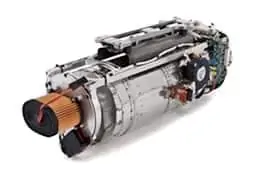Ultra Electronics, AMI recently delivered 45 of its ROAMIO D245XR fuel cells for use by the U.S. military in unmanned aerial systems (UAS). The contract award for this delivery is valued at more than $2 million. The ROAMIO D245XR is the most advanced power technology available today, providing unparalleled long duration flight of more than eight hours in small UAS platforms.
The delivery is the latest in a series of multi-unit manufacturing runs of small propane-fueled solid oxide fuel cell technology. AMI continues to follow its manufacturing plan that has successful deliveries to the U.S. Army, including 30 units to the Rapid Equipping Force (REF), 15 units to the Tank Automotive Research, Development and Engineering Center (TARDEC) and 10 units to the Communications-Electronics Research, Development and Engineering Center (CERDEC). All branches of the U.S. military have tested AMI fuel cells.
“The integration of our ROAMIO D245XR fuel cells with UAS provides a significant strategic advantage to our warfighters in the field,” said AMI president Aaron Crumm. “Compared to other, larger UAS platforms, those powered by the ROAMIO D245XR can fly further and longer, as well as carry more sensors and equipment with a much smaller logistical footprint. The ROAMIO D245XR weighs significantly less than a traditional battery pack or other power source, reducing the overall weight burden of putting advanced UAS payloads and flight duration capabilities into small squads and making it possible for the system to be operated by only one or two warfighters.”
“This delivery continues to moves AMI beyond engineering development and into procurement, supporting the long-term strategic plans that we have with our collaborators and partners to integrate fuel cells with battlefield units,” Crumm added.
The ROAMIO D245XR is designed and tested for integration with UAS weighing less than 25 lbs and with wingspans of approximately 12 ft. The propane fuel cell system enables these UAS to be powered anywhere in the world by locally sourced fuels.



















